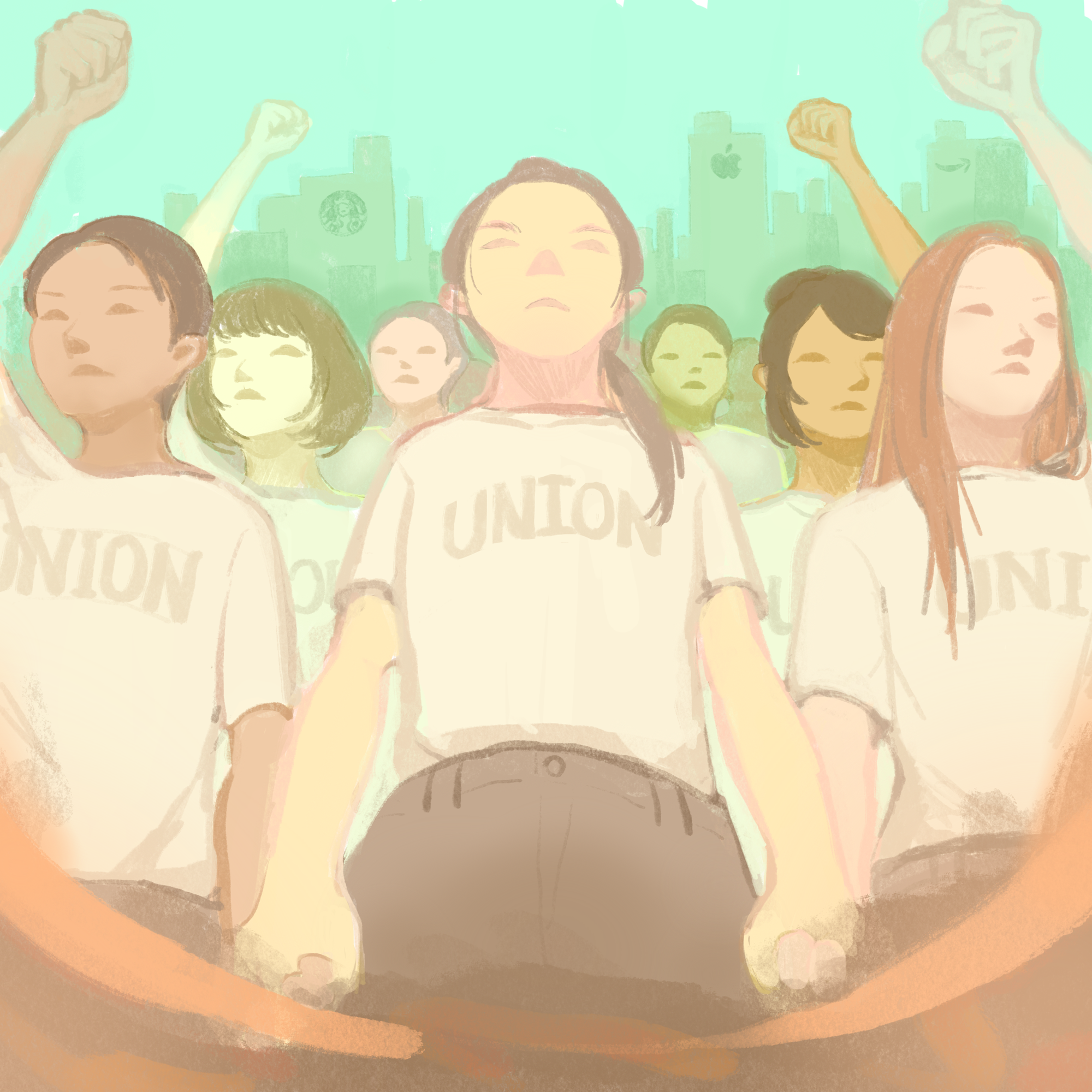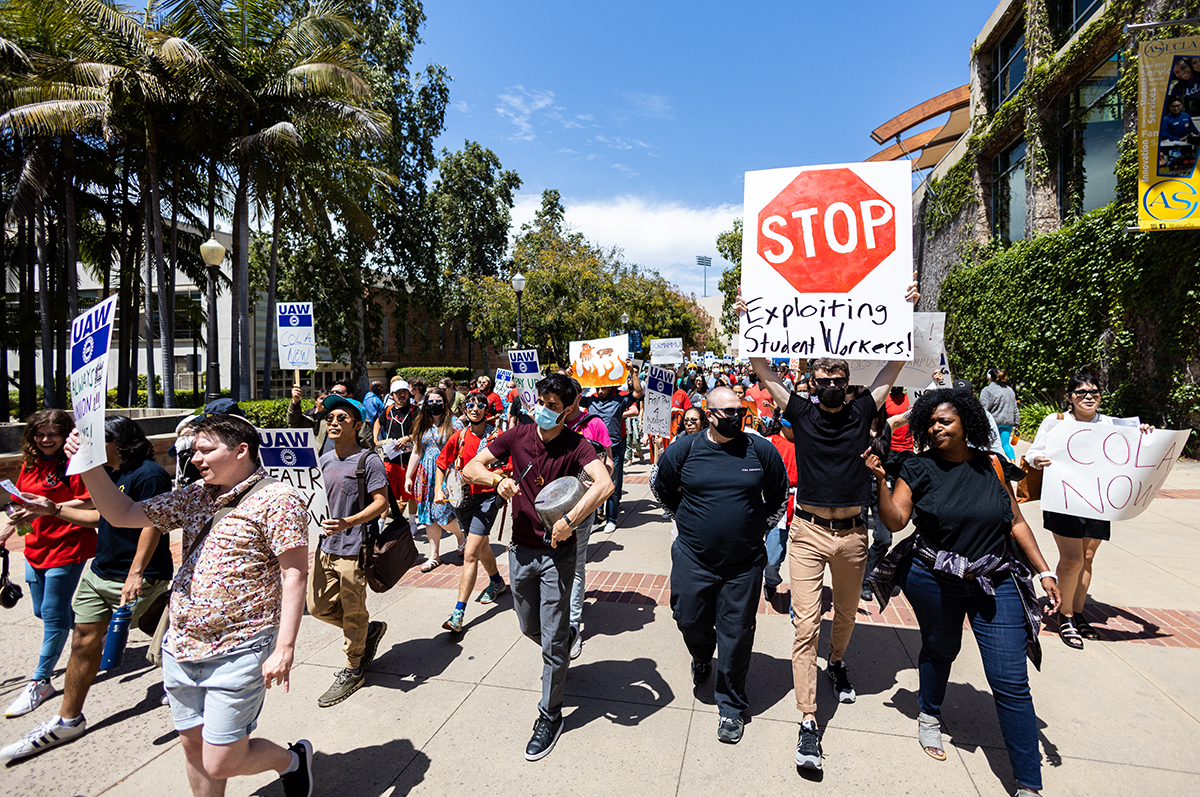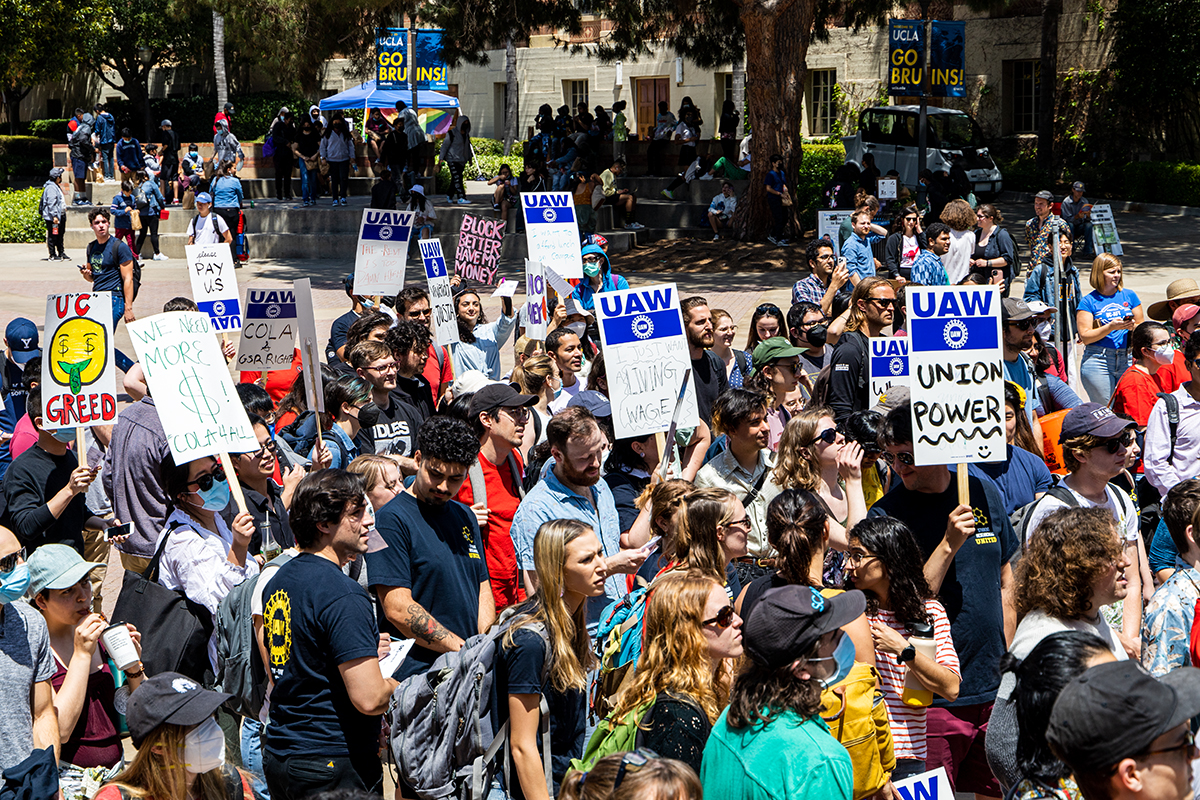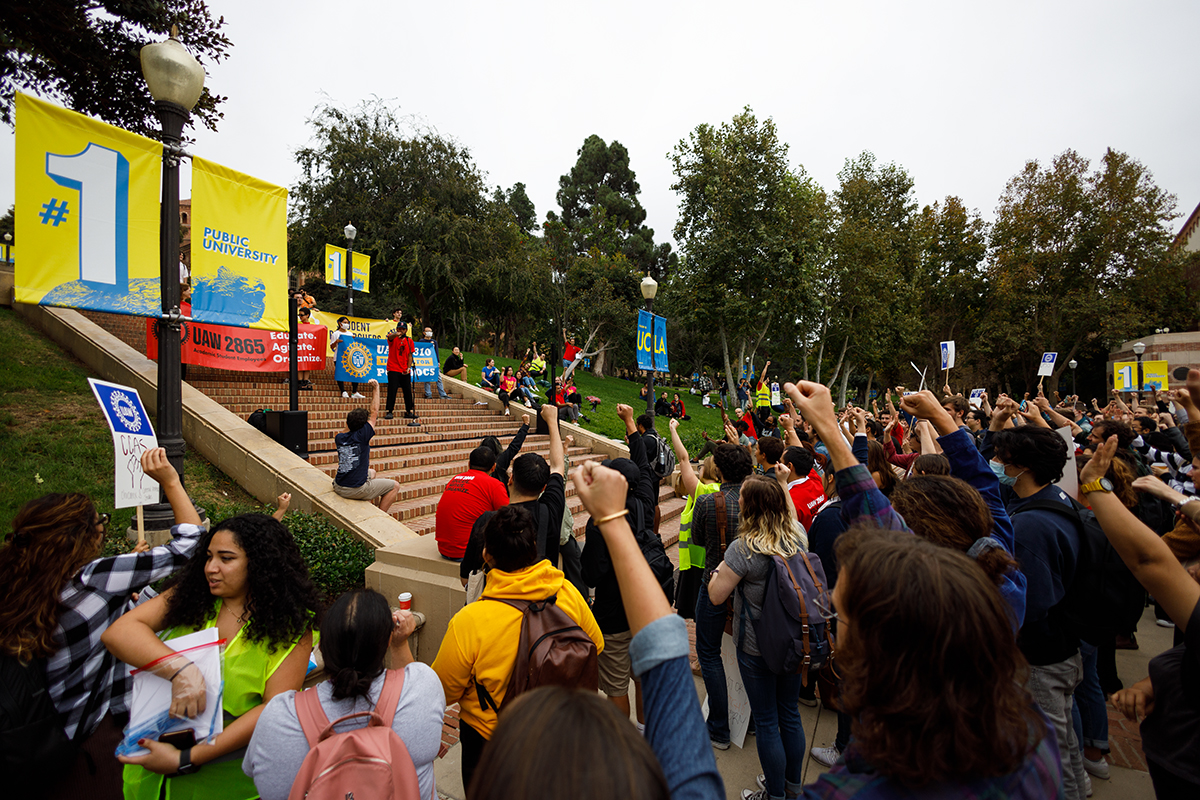The Quad: Labor unions prevent violations, preserve democracy in workplace

(Melanie Chen/Daily Bruin)

By Sujene Kang
April 4, 2023 3:16 p.m.
This post was updated April 11 at 9:29 p.m.
Employees at companies including Starbucks, Amazon and Google have unionized for the first time, and historic collective bargaining deals have taken place across Los Angeles schools.
Unionization began in the United States during the Industrial Revolution to protect workers from unfair wages, according to the History Channel. From then, it grew into an international movement.
Tobias Higbie, associate director of the UCLA Institute for Research on Labor and Employment, said unionization can be defined as the promotion and implementation of democracy in the workplace.
“We would not want to live in a society where we didn’t have political democracy,” Higbie said. “We should ought to have a level of democracy and at least some input, if not democracy, at work, and that is what unions at their best, at the simplest is.”
According to the Economic Policy Institute, unions play a critical role in increasing wages, improving working conditions and protecting against workplace violations.
Labor studies professor Rosemarie Molina, who has had hands-on experience organizing workers to unionize, said unionization is important to combat workplace violations, which are common in the LA communities she works with.
“There’s no education around it, … so we have no understanding of what our rights are as we’re entering the workforce, let alone how to enforce them or what to do when they’re violated,” Molina said. “Unionization is so important because it allows you to be creative in how you stand up for each other.”
Although individuals have recognized the importance of unionization, the 2022 union membership rate is at an all-time low since the first comparable unionization data, according to the Bureau of Labor Statistics.
Higbie said the biggest obstacle to labor law reform today is the lack of campaign finance regulations, which allow bigger companies to effectively utilize their wealth to negatively impact unionization public policy.
“So the Supreme Court has made it so that money is equal to free speech. And that means that very, very wealthy people, … they’re able to throw their money around to affect public policy in ways that they like, and one of the ways that they don’t like is unionization,” Higbie said.
It can also be a strenuous and challenging process. Molina said that collective unionization takes an immense amount of mental and physical strength.
“It’s so hard,” Molina said. “You have to have so much energy and willpower and camaraderie to form a union because the systems, including the incredibly slow and arduous NLRB (National Labor Relations Board) process, could seem like they’re working against you.”
For workers like Araseli Romero, who is the union representative of the first Starbucks to unionize in LA, unionization was well worth it and continues to have positive implications in her work life.
Romero said their Starbucks store experienced safety concerns, encouraging them to ultimately unionize.
“You only have two partners closing, which gets scary,” Romero said. “It was like safety concerns, … people coming in to use our restrooms, doing drugs in there, us having to go clean everything up – from vomiting to diarrhea.”
In the store’s letter of intent to Howard Schultz, the CEO of Starbucks, the team said the staff faced unlivable wages and frequently dealt with unsanitary and unsafe working conditions.
However, after unionizing, Romero added that she saw a noticeable difference in the way younger, first-time workers and students stuck up for their own individual rights without the stress of being fired or having actions taken against them.
There is still hope for the growth of unionization as general sentiments are growing more positive and younger generations are more pro-union than ever, according to the Center for American Progress.
“People are open to it and interested in it, and that wasn’t the case a few years ago,” Molina said. “And I’m really proud of a younger generation, a new generation of being open to taking back their power.”





